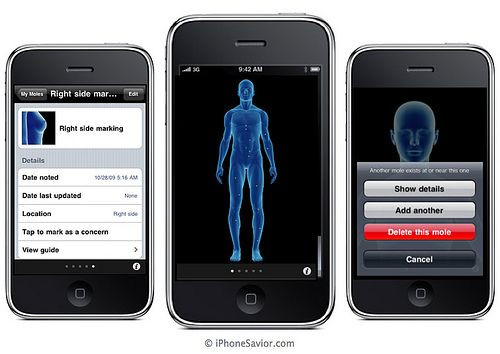FDA Says Smartphone Medical Apps Must Act As Diagnostic Tool To Meet New Regulation Rules

As smartphones continue to blur the line between the digital world and (what was once called) the “real world,” government regulation must often step in to remain up-to-date. The U.S. Food and Drug Administration announced Monday its plan to regulate smartphone apps based on their ability to act as a diagnostic tool.
Many of the apps popping up in the digital landscape allow users to monitor their personal health through diet trackers, calorie counters, and exercise plans. While potentially effective, they rely on user input; the FDA is more interested in the tools that can extract information about a user. These include apps that measure heart rhythm, blood pressure, and the like, as they can offer consistent information based on the underlying technology.
"Today, mobile apps are fast becoming a staple of everyday life," Dr. Jeffrey Shuren, director of the FDA's Center for Devices and Radiological Health, said during a news conference. "Although many mobile apps pertain to health, we are only continuing our oversight for a very small subset of those mobile apps."
In this, functionality stands out as the FDA’s primary concern. Basically, How well does X do what X is supposed to do? A machine such as an ECG (electrocardiography) that can track a heartbeat is “still an ECG machine whether it is the size of a breadbox or the size of a smartphone," Shuren said. "It's not about the platform, it's about the functionality. An ECG is an ECG.”
By 2015, nearly 500 million people worldwide will be using a smartphone app to diagnose certain health metrics, the FDA claims. Along with tracking their own heartbeat, current technology allows smartphone users to perform an ultrasound and help people with insulin-dependent diabetes monitor their blood-sugar levels.
In addition to diet and exercise apps, the FDA will not be regulating apps that keep track of a person’s medications, doctor correspondences, or health records. Such information exists outside the user’s own body, effectively turning regulation into a patient-led pursuit. The FDA’s ultimate goal is to regulate apps that run independently of the user’s medical background.
"If the mobile app specifically transforms a mobile platform into a medical device, like an ECG machine, or it is an accessory to a medical device, like an app that acts as a remote control for a CT scanner and is a functionality we already regulate, we would continue to regulate that kind of technology," Shuren added.
As Health Day reports, the FDA has currently approved the use of more than 100 mobile apps over the last decade. Roughly 40 of those have been cleared in the last two years alone.



























